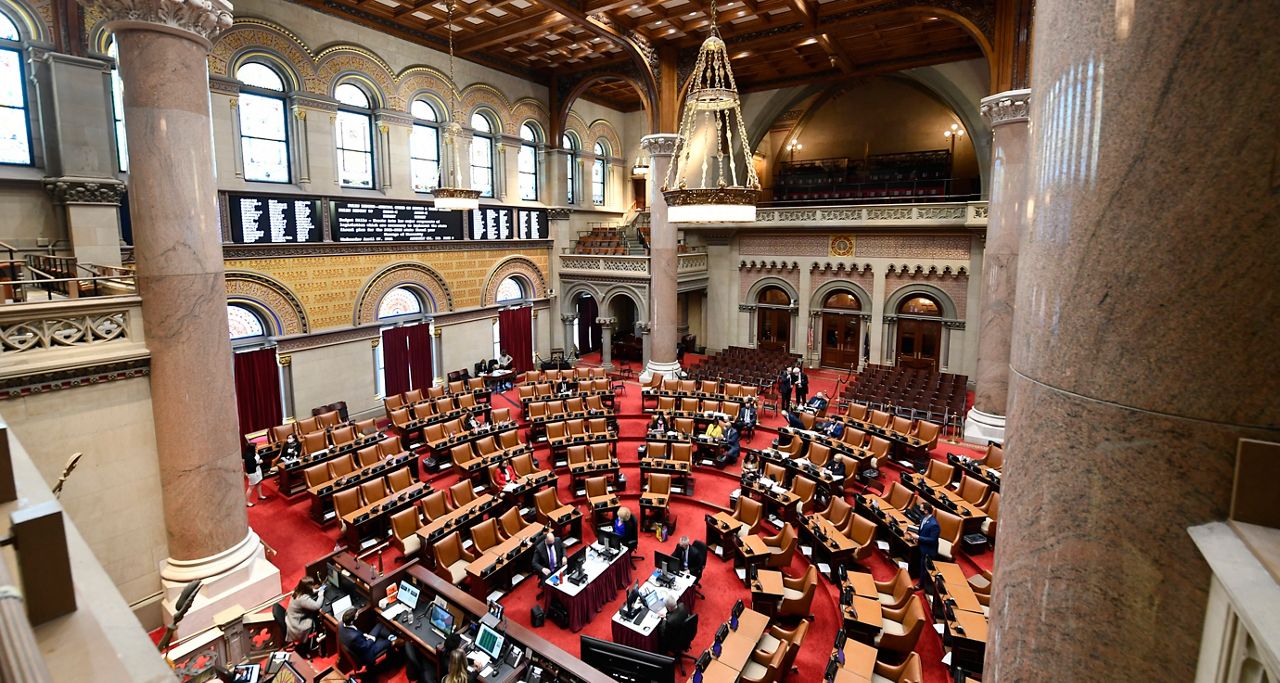A new governor is tested when state lawmakers balk at getting a New York state budget done on time in an election year. Weeks turn into months.
Finally, the impasse is broken. In August.
That was the headache then-Gov. David Paterson faced in 2010 a dozen years ago. To break the logjam, Paterson muscled through his own priorities in what critics called an austerity, recession-inspired spending plan through the so-called "extender" process by placing most of what he wanted approved in a take-it-or-leave-it stopgap measure. A new power for the governor of New York was realized.
Gov. Kathy Hochul on Monday indicated she doesn't want to go that route.
"This a very different budget process where there has been significant respect for both houses," she told reporters. "There has been a spirit and air of collaboration which is I'm going to say is unprecedented. So, we're going to get to the right outcome. We're going to get to the right outcome by working together. I feel very confident of that outcome."
Hochul has emphasized repeatedly she wants to take a more collegial approach to the budget in the halls of a Capitol known more for bare knuckle rhetorical brawling. And unlike previous years, the budget negotiations are not being stalled over spending reductions or cuts to the social safety net or schools.
Hochul has a problem many of her predecessors would envy. The state coffers are brimming with cash due to federal aid and higher taxes on upper income New Yorkers. It has enabled lawmakers and Hochul to have negotiations that would fund child care programs, increase school aid that advocates have called for in the last decade and increase pay for health care workers.
Indeed, New York has more money than it usually does this time of the year. And with spending reductions off the table, some lawmakers are calling for more money to help communities like undocumented immigrants. State Assemblywoman Jessica Gonzalez-Rojas wants the budget to include a provision to provide low-income undocumented New Yorkers with health care.
"These are our neighbors, these are our essential workers," she said. "These are our caregivers in the community, so every single person deserves health care as a human right, but also as a fiscally smart move. Ensuring everyone can get health care coming out of this pandemic is so critical."
Instead, the areas of disagreement largely stem from policy largely divorced from broad spending issues. How should New York's criminal justice system function? What changes need to be made to a 2019 bail law that largely ended cash bail requirements for many criminal charges?
Many of the conversations are technical. A detailed meeting was held this past weekend between lawmakers and local prosecutors to work on issues surrounding evidence discovery. Broadly speaking, Hochul wants to expand the instances in which bail is required, including gun charges and alleged repeat offenses.
She wants to expand a law requiring people who are in a mental health crisis to receive treatment. And she wants changes to a law that sought to remove people under the age of 18 from the adult criminal justice system.
All of these conversations have taken place in recent weeks, and were not included in Hochul's original budget plan presented to lawmakers in February. In other words, the easy stuff was the spending.
For Democrats who are balancing the needs of lawmakers concerned with crime and those who have made a push to reform how punishment is meted out in the court system, it's a difficult equation to solve.
"These multiple discussions over policy — I predicted this, if we were dealing with a budget with multiple conversations around policy, it was going to be late," Assembly Speaker Carl Heastie. "But I think we're making progress."



